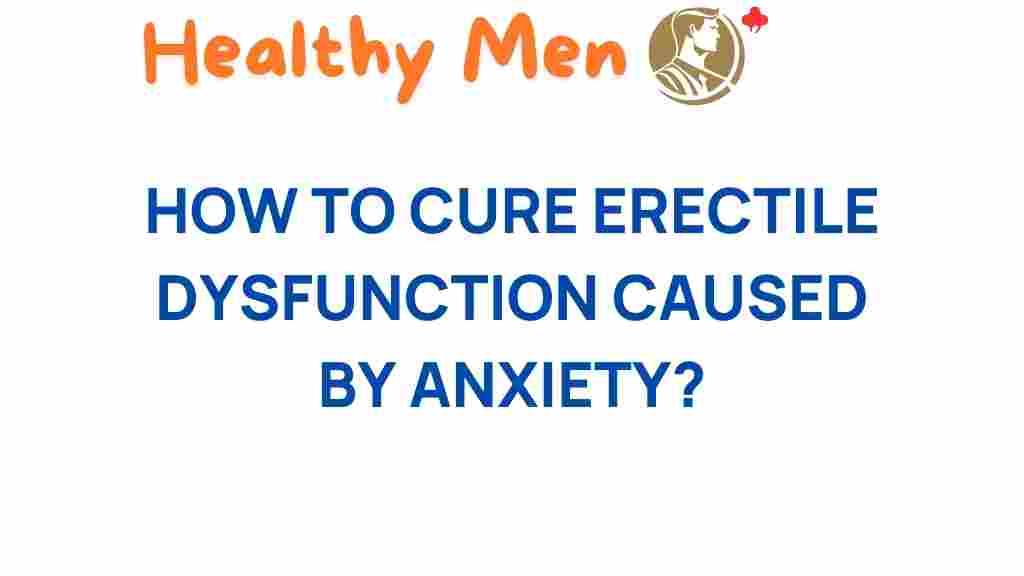Unraveling the Connection: Can Anxiety Cure Erectile Dysfunction?
Erectile dysfunction (ED) is a common issue that affects many men, creating both physical and emotional challenges. While we often associate erectile dysfunction with physical causes, mental health factors, particularly anxiety, play a significant role in its development and persistence. This article explores the intricate relationship between anxiety and erectile dysfunction, shedding light on how addressing mental health can potentially lead to improvements in sexual wellness and intimacy.
The Link Between Anxiety and Erectile Dysfunction
Anxiety can manifest in various forms, including performance anxiety, generalized anxiety disorder, or situational anxiety related to sexual experiences. Understanding how anxiety contributes to erectile dysfunction is essential for effective treatment. Here are some key points:
- Performance Anxiety: The fear of not being able to perform sexually can lead to a cycle of anxiety, which further exacerbates erectile dysfunction.
- General Anxiety: Conditions like generalized anxiety disorder can lead to persistent worry that affects many aspects of life, including sexual health.
- Situational Anxiety: Specific situations, such as a new partner or a high-stakes encounter, can trigger anxiety that interferes with sexual function.
As we delve deeper into this connection, it becomes evident that managing anxiety is a crucial step in treating erectile dysfunction.
Understanding the Dynamics of Mental Health and Relationships
Mental health significantly impacts relationships and intimacy. When anxiety is present, it can create barriers between partners, affecting emotional and physical connections. Here’s how mental health plays a role in relationships:
- Communication Issues: Anxiety can hinder open communication, leading to misunderstandings and frustration between partners.
- Intimacy Challenges: The fear of erectile dysfunction can prevent partners from being intimate, leading to a lack of closeness.
- Emotional Withdrawal: Partners may withdraw emotionally due to the stress and embarrassment associated with erectile dysfunction, further straining the relationship.
Recognizing these dynamics is essential in addressing erectile dysfunction holistically. Couples often need to work together to overcome these challenges.
Step-by-Step Process to Address Anxiety-Related Erectile Dysfunction
Treating erectile dysfunction often requires a multi-faceted approach that includes addressing both physical and psychological factors. Here’s a step-by-step guide to managing anxiety and improving erectile dysfunction:
1. Acknowledge the Problem
The first step in any treatment process is acknowledgment. Recognizing that anxiety is a contributing factor to erectile dysfunction is vital. This may involve having an open conversation with your partner about your feelings and experiences.
2. Seek Professional Help
Consulting a healthcare provider or mental health professional is crucial. They can evaluate your symptoms and provide tailored treatment options. Consider the following:
- Therapy: Cognitive-behavioral therapy (CBT) can help address the underlying anxiety that contributes to erectile dysfunction.
- Medication: In some cases, medication may be prescribed to help alleviate anxiety symptoms.
3. Improve Communication with Your Partner
Open communication is key in any relationship. Discussing your feelings about anxiety and erectile dysfunction can help alleviate some of the pressure. Here are some tips:
- Be honest about your feelings and experiences.
- Encourage your partner to express their feelings and concerns.
- Work together to find solutions that enhance intimacy.
4. Explore Self-Help Techniques
Incorporating self-help techniques can also be beneficial. Here are some methods to consider:
- Mindfulness and Meditation: These practices can reduce anxiety and improve focus, which may help during intimate moments.
- Exercise: Regular physical activity is known to reduce anxiety and improve overall health, including sexual function.
- Healthy Lifestyle Choices: Maintain a balanced diet, limit alcohol consumption, and avoid smoking.
5. Gradual Exposure to Intimacy
If anxiety is severe, it may help to gradually expose yourself to intimacy. Start with non-penetrative activities that can help build comfort and trust with your partner without the pressure of performance.
Troubleshooting Tips for Managing Anxiety and Erectile Dysfunction
While following the above steps can help, there may be times when anxiety resurfaces or erectile dysfunction persists. Here are some troubleshooting tips:
- Practice Relaxation Techniques: Engage in deep breathing exercises or yoga to help manage anxiety in the moment.
- Limit Stressors: Identify and address any external stressors that may be contributing to your anxiety.
- Keep a Journal: Writing down your thoughts and feelings can help you process emotions and identify patterns related to your anxiety and sexual health.
- Revisit Professional Help: If self-help strategies are not yielding results, don’t hesitate to seek guidance from a therapist or counselor again.
Conclusion: Embracing a Holistic Approach to Erectile Dysfunction
The connection between anxiety and erectile dysfunction is complex but crucial for understanding how to navigate these challenges. By addressing mental health through therapy, improving communication in relationships, and employing self-help techniques, individuals can make significant strides toward overcoming erectile dysfunction.
Ultimately, embracing a holistic approach that considers both mental and physical aspects is vital for achieving sexual wellness and intimacy. If you or someone you know is struggling with anxiety and erectile dysfunction, remember that help is available. Take the first step toward healing and reconnecting with your partner.
For more information on mental health and treatment options, consider visiting this resource. If you’re looking for self-help techniques to explore further, check out this guide.
By acknowledging the role of anxiety in erectile dysfunction, we can pave the way for healthier relationships and improved sexual wellness.
This article is in the category Mental and created by healthymen Team
